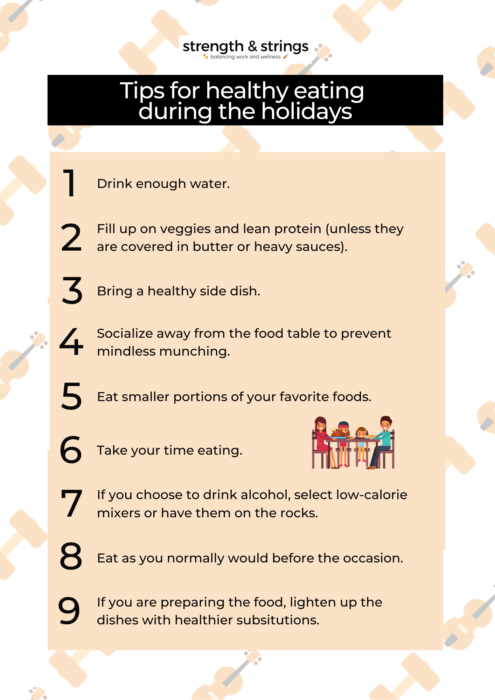
It can be difficult for students to maintain a healthy lifestyle. A tight budget, late nights, work commitments and tight schedules can all impact your health. Here are some helpful tips for students on how to avoid negative health consequences. While these tips do not replace a healthy diet, exercise routine, or healthy lifestyle, they are a good starting point for students to be healthy while they study. You can read more to learn the importance of these tips.
Exercise reduces your risk of illness
You can increase your health and lower your risk of becoming sick in many ways. Exercise helps your brain to produce neuroprotective hormonal hormones which can help protect it from diseases. Exercise can improve your heart and immune system function. All these benefits can help you stay healthy. Don't miss out on the chance to exercise. Below are some ways exercise can improve your overall health.
Healthy diet improves memory
You can improve your memory by eating fish, fatty fish and seafood as well as nuts and whole grains. Folic acid, which is vital for brain health, is found in all of these foods. Eggs are a great source of vitamin B12 and lecithin, and contain choline, a vital building block of neurons. Fish contains high amounts omega-3 fatty acids which are essential nutrients for brain cells, oxygen transport and brain cells. Consuming seafood can even help prevent Alzheimer's disease.

Meditation reduces stress
One study shows that students who meditate regularly experience less stress. This study was conducted with music majors. They were invited daily to practice guided meditation for 10 minutes between classes. Researchers asked Temple College students and Texas A&M University Central Texas students to attend the mediation sessions every day. During November, one of the busiest months for students, the study found that those who practiced meditation significantly reduced their stress levels. Shamatha students saw a significant reduction in stress levels.
Drinking alcohol can cause serious health problems
The effects of drinking alcohol on a college student's health may take months, or even years. Research has shown that college students are more likely to experience alcohol-related illnesses than they were in years past. These include minor cuts, broken bones and concussions. Furthermore, the longer and more frequent the drinking, the higher the chances of becoming addicted to alcohol. The college years are a good time to get into alcoholism.
Avoiding head lice
Your child should not share any personal items with you, such as hats or caps. Students should also avoid personal items, such as headphones, pillows, and car seats that may come in contact with their heads. As lice can live on such items, parents should check the hair of their children. Parents should inspect their child's hair often for lice and nits.

FAQ
Is being cold bad for your immune system?
There are two types of people in the world: those who love winter and those that hate it. But whether you love or hate it, you may find yourself wondering why you feel so lousy when it's cold out.
The fact is that our bodies are designed for warmth and function best. In fact, we evolved to thrive in hot climates because that's where most of our food sources are located.
Now, however, we live in a completely different environment to how our ancestors lived. We spend a lot more time indoors, and are often exposed at extreme temperatures (cold and hot), and we eat processed foods over fresh.
As a result, our bodies aren't used to such extremes anymore. That means that when we do venture outdoors, we're left feeling tired, sluggish, and even sick.
However, there are ways to counter these effects. You can combat these effects by making sure you are well-hydrated all day. You can help flush toxins out of your body by drinking plenty of water.
You must also ensure that you are eating healthy foods. The best way to maintain your body's optimal temperature is by eating nutritious food. This is especially beneficial for those who spend extended periods of time inside.
It is worth taking a few extra minutes each day to meditate. Meditation can help you relax your mind, body and soul. This makes it easier to manage stress and illnesses.
How to measure body weight?
A Body Fat Analyzer will give you the most accurate measurement of body fat. These devices are used for measuring the percentage of body fat in people who want to lose weight.
What is the problem with BMI?
BMI stands for Body Mass Index, which is a measurement of body fat based on height and weight. The following formula can be used to calculate BMI.
Add weight in kilograms to height in meters squared.
The result can be expressed as a number between zero and 25. A score of 18.5+ indicates that you are overweight. A score higher than 23 indicates that you are obese.
A person who weighs 100 kg and has a height of 1.75 m will have a BMI of 22.
What are 10 healthy habits you can adopt?
-
Breakfast is a must every day.
-
Don't skip meals.
-
Be balanced.
-
Get plenty of water.
-
Take care of your body.
-
Get enough sleep.
-
Avoid junk foods.
-
Daily exercise
-
Have fun
-
Make new friends
What is the difference between a calorie or a kilocalorie.
Calories are units that measure how much food has energy. Calories is the unit of measurement. One calorie contains the energy needed to raise the temperature of one gram of water by one degree Celsius.
Kilocalories refer to calories in another term. Kilocalories equal one thousandth of a calorie. For example, 1000 calories equals one kilocalorie.
How can I lower my blood pressure
The first thing you need to do is find out what causes high blood pressure. Next, you will need to determine what is causing high blood pressure. This could mean eating less salt, losing some weight, taking medication, and so on.
You also need to make sure you are getting enough exercise. If you don't have time for regular exercise, then try walking as often as possible.
You should join a gym if you are unhappy with your exercise routine. You will likely want to join an exercise group that shares your goals. It's much easier to follow a routine if someone is with you at the gym.
Statistics
- In both adults and children, the intake of free sugars should be reduced to less than 10% of total energy intake. (who.int)
- WHO recommends consuming less than 5% of total energy intake for additional health benefits. (who.int)
- Extra virgin olive oil may benefit heart health, as people who consume it have a lower risk for dying from heart attacks and strokes according to some evidence (57Trusted Source (healthline.com)
- The Dietary Guidelines for Americans recommend keeping added sugar intake below 10% of your daily calorie intake, while the World Health Organization recommends slashing added sugars to 5% or less of your daily calories for optimal health (59Trusted (healthline.com)
External Links
How To
How to keep motivated to stick with healthy eating and exercise
Motivation tips for staying healthy
Motivational Tips for Staying Healthy
-
List your goals
-
Realistic goals
-
Be consistent
-
Reward yourself for reaching your goal
-
If you fail the first time, don't lose heart
-
Have fun